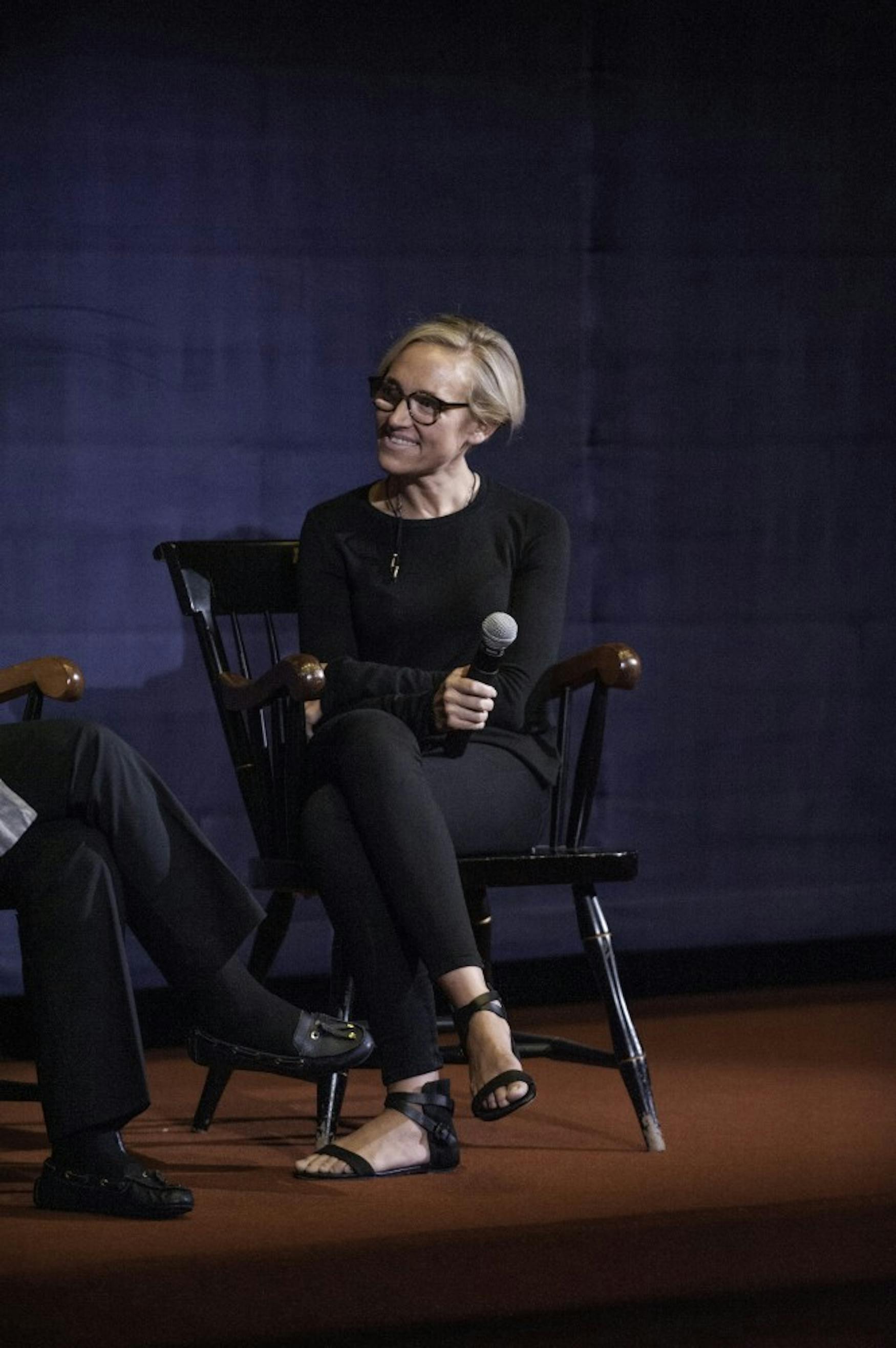‘Obit’ is introspective and enlightening
REVIEW — This past Tuesday, students, faculty and friends of Brandeis University eagerly filed into Wasserman Cinematheque for a special screening of documentarian Vanessa Gould’s latest film “Obit,” which follows the day-to-day life of writers in the obituary department at the New York Times. The event was co-sponsored by the Edie and Lew Wasserman Fund, the Department of Film, Television and Interactive Media and the Journalism department.
It cannot go unmentioned that a majority of the attendees at this event were individuals who were noticeably well into their twilight years, a presence which was hard to ignore in the cinema where a film that would presumably discuss the topic of death at length was about to be presented. However, by the time the curtain closed on the screen as credits finished rolling, that dread had subsided. Surprisingly, “Obit,” as it turns out, is a film about life and has more than a dash of humor.
Gould’s film begins by introducing us to Bruce Weber, a veteran journalist who is in the middle of a phone call. He is interviewing the widow of a man who has recently died. Throughout the conversation, Bruce scribbles down notes on a sheet of paper: date and place of birth, date of death, parents’ names, children, place of education, etc.
The conversation has an oddly pleasant tone as Bruce, along with the anonymous woman at the other end of the line (though we do learn her identity by the end of the film) reflects on the life and achievements of a recently departed member of the human race. What becomes apparent within the first few minutes of the film is that the people who write the obituaries that are featured in the New York Times are quite invigorated, rather than completely depressed, by their jobs.
Aside from Weber, we meet other writers: Margalit Fox, a former book reviewer, Will Grimes, who used to be a restaurant critic, Douglas Martin, a former energy correspondent and veteran Times writer, and Pulitzer Prize winner William McDonald, their fearless desk editor.
After we see Weber’s phone conversation, we listen to testimonials from these writers about whether or not they thought this is where they would end up: the obituary section. The universal answer is an overwhelming “no.” However, none of them are bitter about it. All of these people feel an incredible responsibility to cement the lives of their subjects into history.
In a way, these writers are historians, composing the final documentations of the lives of people who lived on the margins of world events. They write the stories of the people who changed the space program but of whom you have never heard, the story of the man who won Kennedy the presidency over Nixon with a bit of makeup, and even the first reflection on the complete life of Michael Jackson after he died.
But the writers cannot do this alone. Deep down in the basement of the New York Times lies “the morgue,” a library of ancient newspaper clippings, some of which contain photographs that will change your perception of a person.
Running the morgue is the eccentric Jeff Roth, who drew the most laughs out of the audience at last week’s screening. As he cruises his way through the endless files, we cannot help but think that the entire obituary operation would sink without him.
It is through getting to know the people behind the obituaries and hearing their reflections on this very bizarre job that you gain a greater appreciation for life. Overall, this film makes you think about that very thing: life — your own, and those of others. It is uplifting, funny and exciting.
When the credits rolled, there was an extended silence among the audience, which was ended by an anonymous shout of “bravo.” It was then that the audience burst into applause and ovation.
The screening was followed by a special discussion with Vanessa Gould herself, which was moderated by Prof. Eileen McNamara (JOUR). The conversation was enlightening and, like the film being discussed, quite humorous at times.
When Gould admitted to not having been an avid obituary reader before making her documentary, McNamara remarked, “You are obviously not Irish.” She continued, “We call them the Irish sports pages.”



Please note All comments are eligible for publication in The Justice.